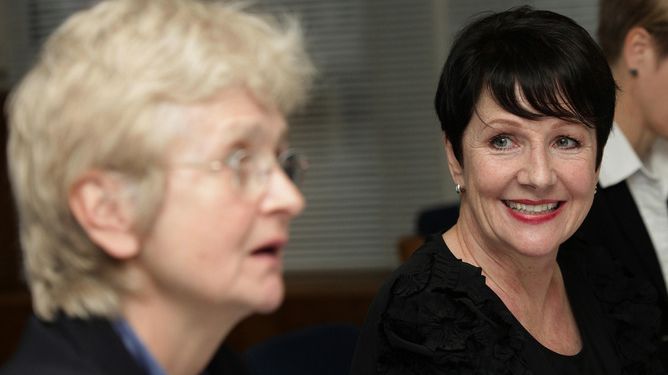
Press release -
Criminal law academic calls for CCRC reform
A Criminal law expert from Northumbria University, Newcastle, has told the Government that the Criminal Cases Review Commission (CCRC) is too complacent and needs urgent reform.
Dr Carole McCartney was invited to give evidence at the Justice Select Committee on Tuesday (January 13) after academics at the university made a submission to the Committee in response to a public consultation. The committee is reviewing the effectiveness of the CCRC, an independent public body that was set up in March 1997 to review possible miscarriages of justice in the criminal courts of England, Wales and Northern Ireland. They have the power to refer appropriate cases to the appeal courts.
The CCRC aims to enhance public confidence in the criminal justice system, to give hope and bring justice to those wrongly convicted, and to contribute to reform and improvements in the law.
Dr McCartney travelled to Westminster for its first session and appeared on the panel alongside academics from Oxford and Warwick universities.
She said: “Criminal law and criminal justice are my areas of specialism and I have conducted research into the issue of miscarriages of justices. The university’s Student Law Office, which undertakes pro bono work, has also worked with the CCRC on criminal appeals, so with this combined experience the Law School was keen to submit a response during the Committee’s public consultation on the organisation.
“We were quite critical as we feel there are particular issues that need urgent attention to ensure the CCRC runs properly. Ultimately we don’t feel it is fulfilling its remit. In our view it is very under resourced, meanwhile the Government is cutting back funding for the police and the courts and the legal profession are suffering, which could in-turn lead to more miscarriages of justice.
“The CCRC is also not a very proactive organisation - it’s very passive and not particularly vocal. There is a lot it could do to improve and prevent miscarriages of justice but we feel it simply doesn’t do enough.”
All academics giving evidence agreed that cutting the organisation’s funding is not an option and that what is really needed is major reform.
Dr McCartney added: “We don’t want it to go, it is better to have it than not, but it has to work properly. Other countries would love to have a resource like this. It can’t be set-up and then be allowed to be complacent.”
Dr McCartney is a Reader in Law at Northumbria University and was previously a senior lecturer in criminal law and criminal justice at the University of Leeds and Bond University, in Queensland, Australia. This was her first experience of giving evidence to the Government.
Describing the experience of being called to give evidence to the Government, she said: “To be asked to give evidence alongside other renowned experts in the field was a real privilege. I hope our comments are taken on board. We were proud to have the opportunity to try and influence reform and hopefully help instigate real change.”
The Justice Select Committee will publish a report into its findings later this year. The contribution from Northumbria shows the depth of academic expertise within the University.
Categories
Northumbria is a research-rich, business-focussed, professional university with a global reputation for academic excellence. To find out more about our courses go towww.northumbria.ac.uk
If you have a media enquiry please contact our Media and Communications team at media.communications@northumbria.ac.uk or call 0191 227 4571.















